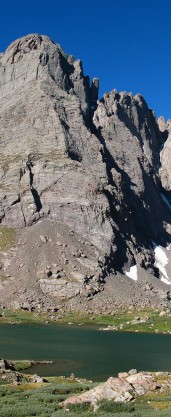 April 28 through May 5, DMI’s Co-Directors Marta Ceroni and Pamela Paquin will embark on a Learning Journey with the Academy for Systemic Change and the Way of Nature in Crestone, Colorado. Our board enthusiastically supported this internal development and it is an honor for us to attend–we will truly be among the “Jedi Masters.” As leaders in the Upper Valley, we hold ourselves fiercely responsible to ensure our own capacities continue to expand and strengthen. It is one thing to discuss “the system” and assist with the efforts and initiatives of others, but quite another to expose and work with your own beliefs and assumptions and ask “how better might I do the good work?” During our time in Colorado, we will be taking a 3 day solo in the mountains. I know I am at once incredibly eager and intensely skittish at what will pop up in the night–this is a great chance to practice my “productive use of tension” theory with the bears and cougars (both real and imagined)!
April 28 through May 5, DMI’s Co-Directors Marta Ceroni and Pamela Paquin will embark on a Learning Journey with the Academy for Systemic Change and the Way of Nature in Crestone, Colorado. Our board enthusiastically supported this internal development and it is an honor for us to attend–we will truly be among the “Jedi Masters.” As leaders in the Upper Valley, we hold ourselves fiercely responsible to ensure our own capacities continue to expand and strengthen. It is one thing to discuss “the system” and assist with the efforts and initiatives of others, but quite another to expose and work with your own beliefs and assumptions and ask “how better might I do the good work?” During our time in Colorado, we will be taking a 3 day solo in the mountains. I know I am at once incredibly eager and intensely skittish at what will pop up in the night–this is a great chance to practice my “productive use of tension” theory with the bears and cougars (both real and imagined)!
With a shared understanding of DMI’s mission, articulated as “building resilience through connecting people and place,” we look forward to increased capacity and tools to bring back to the Upper Valley and share with our peers and clients. If you are curious about the Academy for Systemic Change or Way of Nature, please explore the links above and feel free to contact us if you want to discuss how these approaches and tools are accessible in the Upper Valley.
In addition, the video of Peter Senge’s “Breaking the cycle of Fatalism” resonates deeply with the common characteristics enabling Vermont to show up at the front lines of the emergent economies. There is a deeply sensible and grounded awareness here that “it is possible and we can do that.” While we are all prone to the occasional moment of frustration, it is very clear that this attitude prevails–as evidenced by the mobilizing (a post Irene morale) license plate reading “I am Vermont Strong.” I have no doubt that the village communities of the Green Mountains and the protection of historical ways of life lay somewhere near the heart of how the region has retained and reinforced its resilience and adaptability. That, combined with a ruthless devotion to a “what works works” sensibility, has allowed awareness and relatively swift adaptations to challenges like a carbon economy, urban sprawl and gentrification, climate change, or human health systems. There truly seems to be the heart of a lion right behind that reserved New England facade!
We look forward to sharing new tools and clarity with you in May!
Pamela







